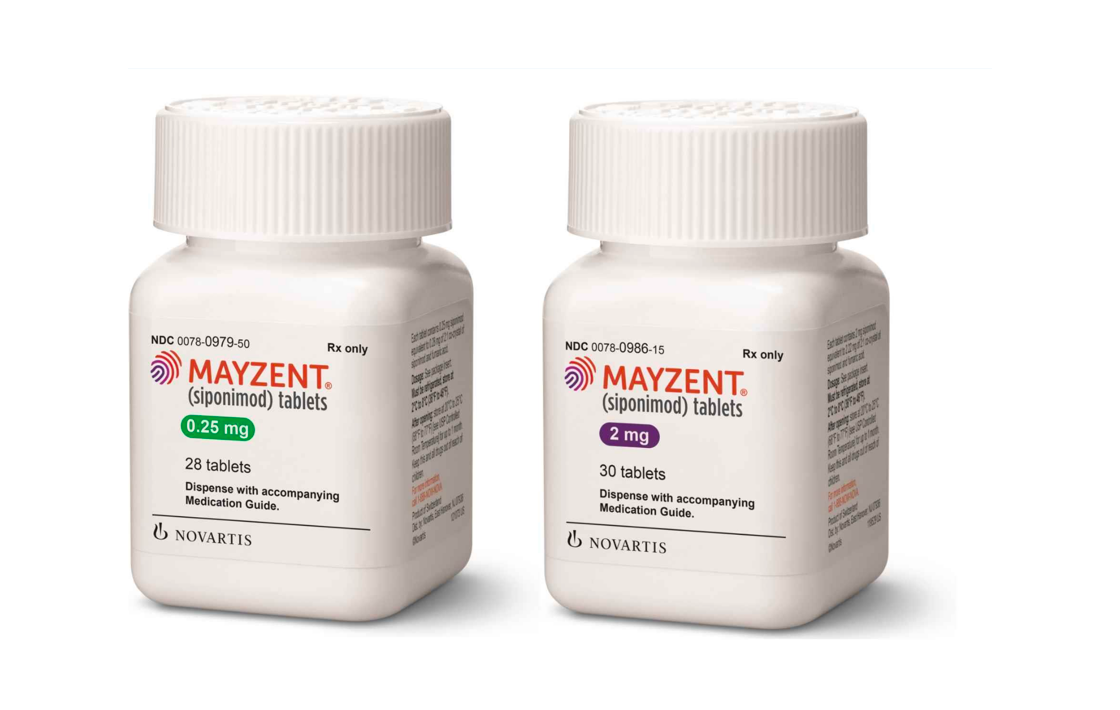Mayzent (Siponimod) vs Tyruko (natalizumab-sztn)
Mayzent (Siponimod) vs Tyruko (natalizumab-sztn)
Mayzent (Siponimod) is an oral sphingosine 1-phosphate receptor modulator approved for the treatment of relapsing forms of multiple sclerosis (MS), including clinically isolated syndrome, relapsing-remitting disease, and active secondary progressive disease. Tysabri (natalizumab), on the other hand, is a monoclonal antibody administered intravenously and is indicated for relapsing forms of MS to slow the progression of disability and reduce the frequency of flare-ups. When deciding between these medications, a patient should consider factors such as the route of administration, the risk of side effects such as Progressive Multifocal Leukoencephalopathy (PML) associated with Tysabri, and the specific type of MS being treated, in consultation with their healthcare provider.
Difference between Mayzent and Tyruko
| Metric | Mayzent (Siponimod) | Tyruko (natalizumab-sztn) |
|---|---|---|
| Generic name | Siponimod | Natalizumab-sztn |
| Indications | Relapsing forms of multiple sclerosis (MS), including clinically isolated syndrome, relapsing-remitting disease, and active secondary progressive disease, in adults | Relapsing forms of multiple sclerosis (MS), Crohn's disease (moderate to severe) |
| Mechanism of action | Sphingosine 1-phosphate receptor modulator | Integrin receptor antagonist |
| Brand names | Mayzent | Tyruko |
| Administrative route | Oral | Intravenous |
| Side effects | Headache, hypertension, liver function test abnormalities, bradycardia | Headache, fatigue, urinary tract infections, arthralgia, and infusion-related reactions |
| Contraindications | CYP2C9*3/*3 genotype, recent myocardial infarction, stroke, certain types of heart failure, severe active infections, immunosuppression | Progressive multifocal leukoencephalopathy (PML), hypersensitivity to natalizumab |
| Drug class | Sphingosine 1-phosphate receptor modulator | Monoclonal antibody |
| Manufacturer | Novartis | Biogen |
Efficacy
Efficacy of Mayzent (Siponimod) in Treating Multiple Sclerosis
Mayzent (Siponimod) is an oral medication approved by the Food and Drug Administration (FDA) for the treatment of adults with relapsing forms of multiple sclerosis (MS), including clinically isolated syndrome, relapsing-remitting disease, and active secondary progressive disease. Clinical trials have demonstrated that Siponimod is effective in reducing the frequency of relapses and delaying the progression of disability associated with MS. The pivotal Phase III trial, EXPAND, showed that Siponimod reduced the risk of three-month confirmed disability progression by 21% compared to placebo. Additionally, the annualized relapse rate was significantly lower in patients treated with Siponimod compared to those on placebo.
Mayzent works by modulating the activity of certain types of immune cells, known as sphingosine 1-phosphate (S1P) receptors. By binding to these receptors, Siponimod sequesters lymphocytes in lymph nodes, preventing them from contributing to the autoimmune attack on the myelin sheath of nerve fibers in the central nervous system, which is a hallmark of MS. This mechanism of action helps to reduce the inflammatory activity and demyelination in the nervous system, thereby mitigating the progression of the disease.
Efficacy of Tysabri (Natalizumab) in Treating Multiple Sclerosis
Tysabri (Natalizumab), with the biosimilar Natalizumab-sztn, is a monoclonal antibody administered via intravenous infusion and is approved for the treatment of relapsing forms of multiple sclerosis. Tysabri has been shown to be highly effective in reducing the frequency of clinical exacerbations and in delaying the accumulation of physical disability. In the AFFIRM and SENTINEL clinical trials, Tysabri demonstrated a 68% relative reduction in the annualized relapse rate over two years compared to placebo. Moreover, the risk of sustained progression of disability was reduced by 42-54% over the same period.
Tysabri's mechanism of action involves the inhibition of the movement of potentially damaging immune cells from the bloodstream, across the blood-brain barrier, into the brain and spinal cord. This action reduces the immune-mediated attack on the central nervous system. Due to its efficacy, Tysabri is often considered for patients with highly active relapsing MS or for those who have not responded adequately to other treatments. However, it is important to note that Tysabri is associated with an increased risk of progressive multifocal leukoencephalopathy (PML), a rare but serious brain infection, which necessitates careful patient selection and monitoring.
Regulatory Agency Approvals
Mayzent
-
European Medical Agency (EMA), European Union

-
Food and Drug Administration (FDA), USA

-
Therapeutic Goods Administration (TGA), Australia

Tyruko
-
European Medical Agency (EMA), European Union

-
Food and Drug Administration (FDA), USA

Access Mayzent or Tyruko today
If Mayzent or Tyruko are not approved or available in your country (e.g. due to supply issues), you can access them via Everyone.org.
How it works

Make an enquiry
Choose the medicine you want to buy, answer a couple of questions, and upload your prescription to speed things up. We’ll get back to you within 24 hours.


Make an enquiry
Choose the medicine you want to buy, answer a couple of questions, and upload your prescription to speed things up. We’ll get back to you within 24 hours.


Breeze through the paperwork
We'll guide you through the required documents for importing unapproved medicine, ensuring you have all the necessary information.


Get a personalized quote
We’ll prepare a quote for you, including medicine costs and any shipping, administrative, or import fees that may apply.


Receive your medicine
Accept the quote and we’ll handle the rest - sourcing and safely delivering your medicine.

Some text on this page has been automatically generated. Speak to your physician before you start a new treatment or medication.
Let's talk
If you have any questions, call us or send us a message through WhatsApp or email:
Contact us




